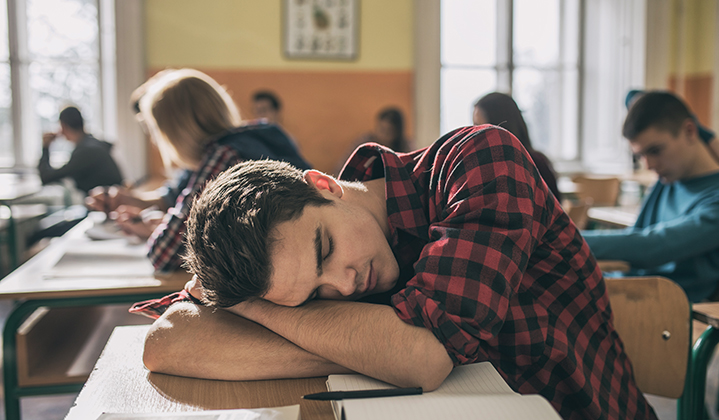
An overlooked recovery strategy that is vital in supporting both a student-athlete’s health and sport performance, is sleep. Student-athletes should sleep between 9 and 11 hours per night to reach their peak athletic performance.
When it comes to training for sports, many student-athletes and their parents recognize the importance of eating well and consistent exercise, but sleep is often overlooked as a factor that can affect a child’s performance and recovery. That’s unfortunate because getting enough quality slumber is critical for an athlete’s energy, coordination, muscle growth, recovery, repair, mental focus, ability to manage stress, and academic performance.
Contrary to common perception, sleep isn’t a passive activity; it’s an active state that leads to repair, recovery and regeneration for an athlete’s body and mind.
How it helps their game
Besides improving physical energy and mental stamina during practices and games, sleep can improve skills specific to various activities. For instance, sleeping more can increase shooting accuracy among basketball players, and the accuracy of serves among tennis players. By contrast, insufficient sleep or sleep deprivation (such as pulling an all-nighter) can impair a student-athlete’s reaction time, lead to decreased exercise tolerance and a quicker onset of exhaustion while playing sports.
Enough sleep is especially important in young athletes for growth, development, recovering from injury and even helping prevent future injuries. Research shows that teen athletes with a lack of sleep are at a higher risk of injury.
Ways to get more sleep
Given the demands of practice and competition schedules, as well as academic responsibilities, student-athletes are at a considerable risk of not getting enough sleep to meet the needs of their active bodies and minds. Making high-quality sleep a priority is a must.
Start by helping your athlete stick with a consistent sleep schedule (including bedtimes and awakening times) that allow for enough sleep.
Create a relaxing routine before bed to help your student-athlete manage stress and decompress. Don’t allow the use of electronic devices shortly before bedtime, as it suppresses secretion of melatonin, which is not conducive for sleep.
If the opportunity allows, let your student-athlete nap (20 to 30 minutes) to supplement inadequate night-time sleep on an as-needed basis. Be careful though because napping longer can interfere with the much more important nighttime sleep.
If a student-athlete is consistently struggling with sleep where it could be because of a more serious condition such as insomnia, sleep apnea or a sleep-related movement disorder, he or she should see their primary care physician who may refer to a sleep specialist if needed.
